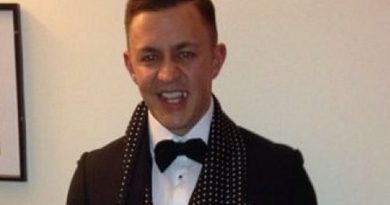BBC bosses to be grilled by MPs over Diana interview fallout
MPs are set to summon BBC bosses to give testimony about the Martin Bashir scandal and the safeguards in place to prevent a repeat.
The Commons digital, culture, media and sport committee will meet on Monday, London time, to discuss plans for a one-off special evidence session on the row engulfing the broadcaster, according to sources close to the committee.
Discussions took place between MPs on WhatsApp over the weekend about requesting current and former BBC chiefs to appear before them.
Princess Diana in 1995, a few days after her interview with Martin Bashir aired on the BBC program Panorama. Credit:AP
It followed the publication of Lord Dyson’s damning report into Mr Bashir’s use of fake bank statements to persuade Diana, Princess of Wales to give her interview to Panorama in 1995, in a “serious breach” of the broadcaster’s guidelines.
Some committee members are pushing for Tony Hall, the BBC’s director-general from 2013 to 2020 who was heavily criticised in the report, to answer questions about the row.
Hall presided over a 1996 internal inquiry in the Panorama interview, last week branded “woefully inadequate”, in which he concluded Bashir was “an honest and honourable man”.
Hall was director-general of the BBC when Bashir was rehired as a correspondent in 2016. Last week, Hall said in a statement that he was “wrong to trust” the reporter and went on to resign from his role as chairman of the National Gallery amid the outcry.
Tim Davie, the current director-general of the BBC, is also expected to be called to appear before MPs to answer questions about the protections in place to prevent the same mistakes occurring in future.
It is possible that BBC Chairman Richard Sharp may also be called to appear for the evidence session.
On Sunday, Priti Patel, the Home Secretary, declared that the BBC’s reputation had been “seriously, seriously damaged” by the controversy.
She highlighted the refusal of corporation bosses to appear on the airwaves to discuss the scandal and provide reassurance.
“Where is the BBC, the leadership of the BBC at this moment in time? Why aren’t they out there publicly giving confidence and building confidence in terms of the publication of this report?,” Ms Patel told BBC One’s Andrew Marr Show.
She refused to rule out criminal prosecutions, telling Sky News’ Trevor Phillips on Sunday program: “If there is subsequent action that needs to be taken, then clearly – alongside the publication of this report and lessons being learned and changes, changes to the institution, structure, governance, accountability – then that will follow.”
Bashir has sparked a furious backlash after giving a defiant interview in which he failed to acknowledge the collateral damage caused by his deceit in obtaining the Princess Diana interview.
With the ink barely dry on Lord Dyson’s excoriating report, the former Panorama reporter issued an defence of his actions – insisting he loved Diana and did not believe he had harmed her in any way.
Bashir, 58, said he was “deeply sorry” to Princes William and Harry for any upset he had caused them.
But he failed to apologise to the numerous people who lost their jobs and had their reputations shredded as he forged documents and told lies in order to secure the interview 25 years ago.
Among those who suffered was Matt Weissler, the graphic artist Mr Bashir used to mock up the fake bank statements, and Alan Waller, Earl Spencer’s former head of security, who was suspected of selling information about his employer.
Mark Killick, who lost his job on Panorama after trying to blow the whistle, said his former colleague seemed unable or unwilling to accept that a lot of people had suffered because of his behaviour.
“The collateral damage and the human cost of what he did is very high and he needs to engage that as well,” he said.
In an interview in the Sunday Times, Bashir, who stepped down from the BBC as its religious affairs editor earlier this month due to ill health, defended his duplicity by insisting Diana had been happy with the interview.
He admitted showing Earl Spencer the forged bank statements but remarkably claimed it had not had a negative impact on anyone.
He said: “Obviously I regret it, it was wrong. But it had no bearing on anything. It had no bearing on Diana, it had no bearing on the interview.”
Killick said the tone and timing of his comments showed that he had little or no contrition over what he had done.
He said: “It does strike me as quite extraordinary that Martin Bashir is trying to rehabilitate himself by launching a PR campaign quite so soon after what Lord Dyson said about him.
“I think it is clear that the Martin Bashir scandal hurt large numbers of people. It echoed right through on Princess Diana’s side of the line. Her courtiers had their reputations destroyed and lost their jobs.
“The people who were named in the bank statements, who didn’t take payments, had their reputations destroyed.
“The collateral damage and the human cost of what he did is very high and he needs to engage that as well.”
Terry Venables, the former England football manager, was also targeted by Bashir in a Panorama episode that made allegations about his financial dealings.
He believes Bashir may have also used fake documents during that investigation and hopes now the Dyson report has been published there might be an opportunity to set the record straight
A spokesman for Venables said: “We find it simply staggering that Martin Bashir seems quite incapable of recognising he has done anything wrong. There are now, it seems, many victims of his shoddy journalistic practices and he sure isn’t one of them.”
Diana’s biographer has accused Martin Bashir of scaring the Princess “half to death” in order to land his interview.
Andrew Morton, who wrote the 1993 book Diana: Her True Story denied suggestions that her involvement in the Panorama broadcast had been “self indulgent”, insisting it was more about “self preservation”.
The former tabloid journalist, who gained unprecedented access to Diana when he was writing his biography, said Bashir had left her in a state of “fear and trepidation”.
Asked if Bashir would have landed the scoop had it not been for his duplicity, Morton told Sky’s Trevor Phillips: “He wouldn’t have got it, he scared her half to death.”
Morton went on: “He had her thinking he had contacts inside MI5, he was very plausible, he arranged meetings in underground car parks – scary places at the best of times, but when you think your life was in danger it was very potent. She was put in a state of fear and trepidation.”
The Telegraph, London
Most Viewed in World
From our partners
Source: Read Full Article



